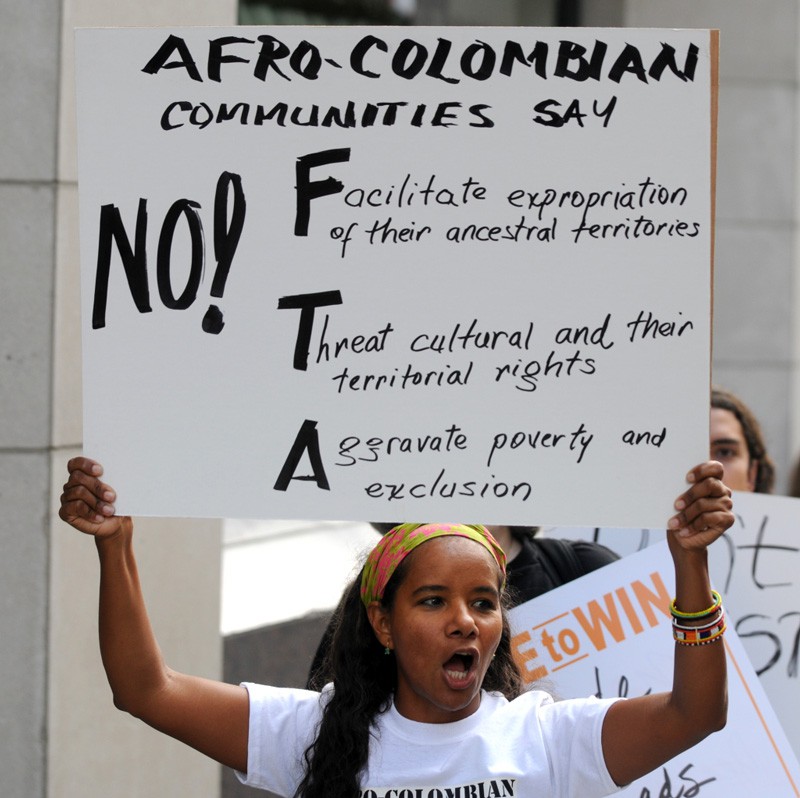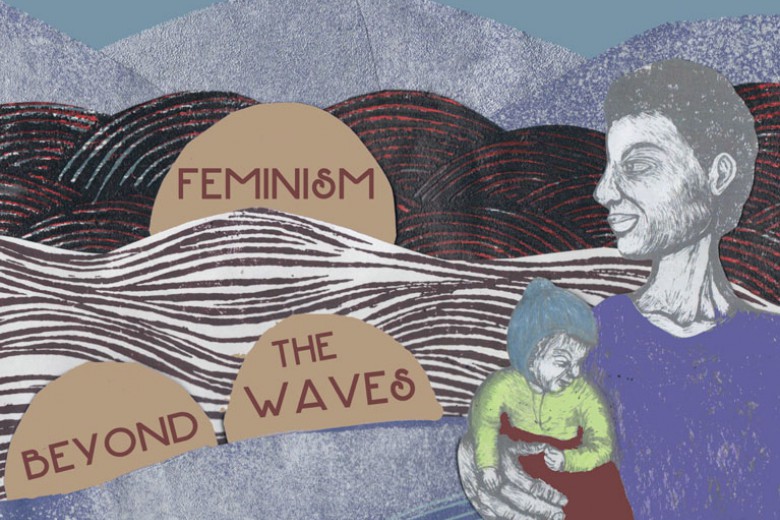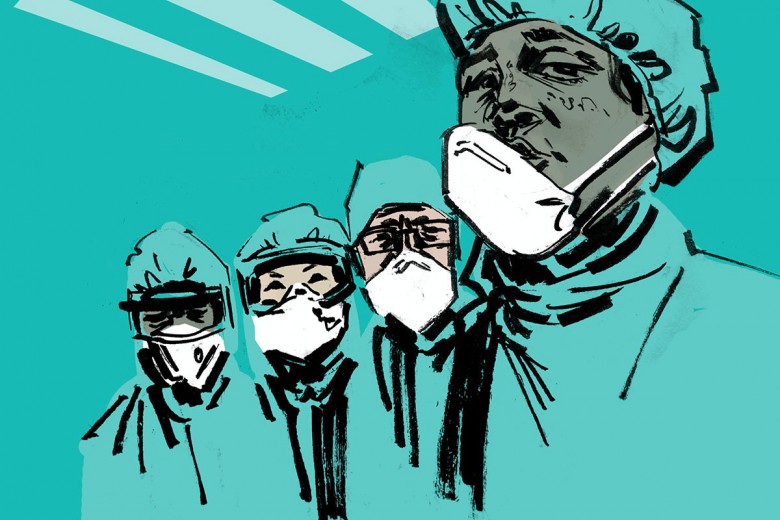
Canada is very close to jumping into bed with one of the worst human rights violators in the hemisphere, and almost no one seems to have noticed. Negotiations for the Canada-Colombia Free Trade Agreement were concluded on June 7, 2008. Ex-foreign affairs minister David Emerson made the announcement unexpectedly, on a Saturday, even before the Standing Committee on International Trade had finished deliberating as to its merits. Talk about a shotgun wedding.
The hasty marriage is part of Canada’s “renewed engagement” in the Americas under the direction of the Harper Conservatives. The agreement with Colombia has elicited criticism from diverse sectors in both countries. Though the agreement’s details have not yet been made public, it will likely mirror Canada’s recent deal with Peru, which contains investment protection guarantees for Canadian corporations operating in Peru as well as lower tariffs for Peruvian exporters. The Canada-Colombia deal is currently delayed by the Canadian election.
Labour groups in Colombia see the deal as a serious blow to Colombia’s economic prospects. Colombia’s economy will improve only after a strong internal market has been developed in which Colombian needs are met by Colombian products, says Gustavo Triana, vice-president of the Central Union of Workers (CUT), one of Colombia’s largest unions.
“The increased arrival of food and products from other countries because of free trade agreements increases unemployment, hurts our economy and lessens our quality of life,” Triana told Briarpatch from Bogota.
The federal government’s Standing Committee on International Trade published a report on the deal a week after negotiations ended. The report included eight recommendations, the second of which “recommends that the Government of Canada maintain close ties with Colombia without signing a free trade agreement” until major advances are made in Colombia’s handling of human rights, labour rights and the environment. The Conservatives, however, distanced themselves from the report, which was endorsed by the other parties. Though Stéphane Dion has recently voiced his opposition to the Canada-Colombia Free Trade Agreement, it is unknown how the Liberals will react if the agreement is tabled and the legislation brought to a vote.
South of the border, George W. Bush and the Republicans have pushed unsuccessfully for a free trade pact with Colombia. On April 10, 2008, Bush submitted a proposal to Congress but the Democrats wouldn’t co-operate, in part because of pressure from the American labour movement, which demands reductions in labour rights violations and an end to the assassinations of Colombian trade unionists.
Enter the Canada-Colombia Free Trade Agreement, just in time to breathe new life into the stalled U.S.-Colombia deal. As University of Toronto professor John Kirton told Bloomberg in May, the eventual signing of a Canada-Colombia Free Trade Agreement “will give aid and comfort to all the liberalizing forces within the United States who are instantly going to notice it and say “˜if the Canadians are doing Colombia, why can’t we?’”
In Colombia, organizing can be deadly
Canadians concerned about respect for human rights have good reason to oppose a trade deal with Colombia. Human Rights Watch characterizes Colombia as the country with the “worst human rights and humanitarian situation in the region, with many serious problems, including massive internal displacement, killings, and enforced disappearances.”
After three years of collecting and analyzing evidence in Colombia, the Permanent Peoples’ Tribunal – an international organization descended from the International War Crimes Tribunal founded by Bertrand Russell and Jean-Paul Sartre in 1966 – announced its verdict on the complicity and sometimes active participation of multinational corporations in human rights abuses in Colombia. The tribunal found that the country’s union movement has been the victim of “genocidal practices” including massacres of union members and a concerted attempt to “liquidate” Colombian trade union members.
The result has been a precipitous decline in union membership. According to the union’s president, Tarisco Mora, the CUT had 1.5 million members at its founding, a number that has since fallen to 460,000 due to legal challenges to unionization and violence against union members.
This violence has been both widespread and systematic. According to Colombia’s National Trade Union School, there have been 2,245 killings, 3,400 threats and 138 forced disappearances of trade unionists over the 15-year period between January 1991 and December 2006.
Consequently, trade union members represent only a fraction of working Colombians. Triana notes, “It’s important to understand that there is a complete disregard for labour law in Colombia, and the vast majority of workers – around 80 per cent – work on informal contracts and have no right to unionize.”
A September 15th strike exemplifies the problem. Striking sugar cane cutters and plant workers in southern Colombia – workers who are not unionized, but who are supported by the CUT – were attacked by Colombian National Police’s Mobile Anti-Disturbance Squad (ESMAD). More than 33 workers were wounded. Radio and TV stations broadcast messages on behalf of plant owners stating: “striking won’t bring solutions, it will only bring unemployment” and “don’t allow your husbands to participate.”
The number of union members killed in 2007 dipped slightly, but according to the National Trade Union School, “the lessening of the deaths and the increased protection of union members in Colombia has converted itself to a political strategy for the discussion of Free Trade Agreements, and is not about sincere concern for the defence of life and the rights of workers.” Indeed, Colombian unionists fear that once free trade deals are signed, the crackdowns will reintensify. From January to September 2008, 41 Colombian unionists were murdered.
These crimes are often committed with impunity, a point that Maria McFarland Sanchez-Moreno, a senior researcher with Human Rights Watch, raised in her testimony before the Standing Committee on Foreign Affairs and International Trade in June: “the rate of convictions for unionist killings has been consistently low, all the way through 2006: there were nine convictions in 2003, 11 in 2004, nine in 2005 and 11 in 2006.”
In 2007, that number spiked to 43 convictions, mostly “due to pressure from the United States Congress in connection with the U.S.-Colombia Free Trade Agreement,” Sanchez-Moreno testified. “But once the pressure is lifted, the administration of President Ãlvaro Uribe will lose its main motivation for supporting the investigations.” Sanchez-Moreno urged Canadian lawmakers not to enter into a trade agreement with Colombia.
Decades of labour solidarity
Co-operation between Canadian and Colombian unions goes back at least 20 years. According to the Canadian Labour Congress’s Sheila Katz, “Colombia has, for at least two decades, been the focus of trade union solidarity because the Colombian labour movement has been the target of right-wing violence generated by the ruling class and its allies in government.” The CLC has produced research on human rights abuses in Colombia, launched letter-writing campaigns and organized protests in Canada, and assisted Colombian trade unionists with complaints before the International Labour Organization.
The CLC and the New Democratic Party have been two of the main organizations campaigning against the Canada-Colombia Free Trade Agreement, though their campaign has not yet gained momentum outside of the union sector. One of the key thrusts of union campaigning so far is drawing attention to what the NDP has dubbed a “kill a trade unionist, pay a fine” clause to be included in the agreement. The proviso would require the Colombian government to pay a token monetary sum into a “co-operation fund” administered by the Colombian government whenever a union leader is murdered – a policy that critics decry as a normalization of such assassinations.
As part of a CLC-supported fact-finding mission, leaders from Canada’s four major federal public-sector unions – CUPE, CUPW, PSAC and NUPGE – visited Colombia in July of 2008. At the end of their trip, the union leaders released a statement that read, “Our overwhelming conclusion is that a free trade agreement will not help the Colombian people. It will only exacerbate an already horrifying list of human and labour rights abuses that are shocking the world.” There was no mainstream media coverage in Canada of their tour.
Free trade agreements in the U.S. and Canada
In the United States, the push for a free trade agreement with Colombia is a contentious issue. Opposition comes mainly from unions and a diverse coalition of citizen-based groups that oppose such a deal.
“Not one labour, environmental or faith organization supports the Free Trade Agreement with Colombia,” says Andrew Gussert, national director of the Citizens Trade Campaign, a coalition of labour, environmental, religious, family farm, and consumer organizations in the U.S., representing more than 14 million people.
“When a member of Congress gets a call from a steelworker, a teamster, the head of the local Sierra Club, a priest, and the head of a local farmer’s union who disagree with the FTA, it has an impact,” Gussert told Briarpatch. Gussert points out that similar pressure urgently needs to be applied in Canada if the Canadian deal is to be stopped.
Continued opposition from the largest labour groups in the U.S., supported by many other sectors of American society, has kept the pressure on Congress to maintain its opposition to an agreement. Democratic House Speaker Nancy Pelosi reiterated the lack of support for the agreement in Congress on June 29: “There is widespread concern in Congress about the level of violence in Colombia, the impunity, the lack of investigations and prosecutions, and the role of the paramilitary. Issues of this nature cannot solely be resolved through language in a trade agreement… . Consequently, we cannot support the Colombia FTA at this time.”
In Canada, the issue is not nearly as contentious. When asked how the CLC would campaign on the issue through the election period, Katz responded, “The Colombia trade deal per se is probably not going to be a major issue in the election. But we are trying to get some of the leaders to mention it in their speeches and of course get questions fed into all-candidates meetings.”
Gustavo Triana of the CUT plainly states his opposition to the deal: “Free trade agreements are not good for people.” Whether this sentiment is held widely enough to keep the Canada-Colombia deal from being implemented remains to be seen.






